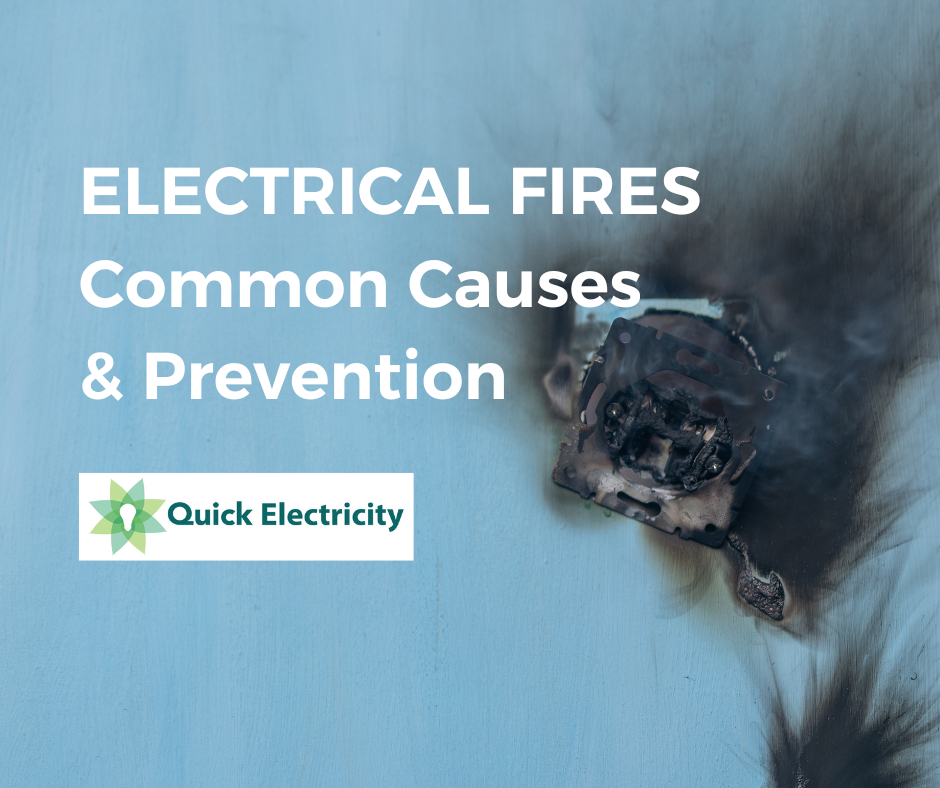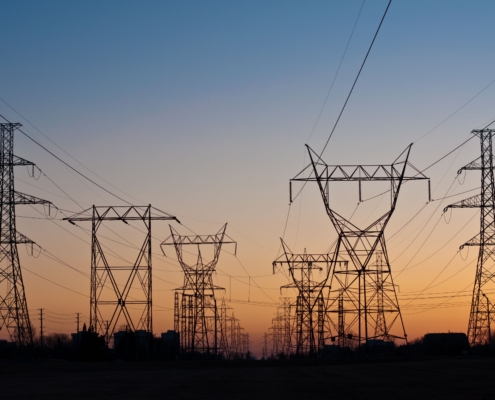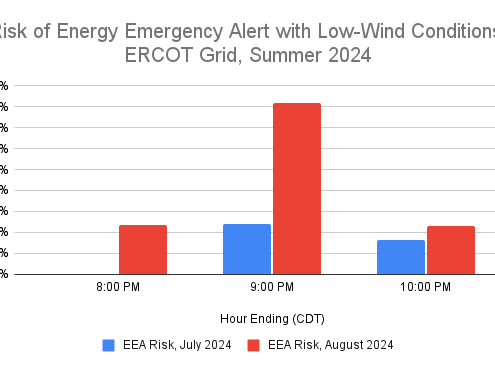Last Updated on March 1, 2023 by Mary Pressler
Electrical Fires: Common Causes and Prevention
Electric power grids are the fastest and most efficient energy delivery systems in modern society. However, electricity can be very dangerous when a home has defective wiring and appliances. According to the Electrical Safety Foundation International (ESFI), there are around 51,000 electrical fires per year in US homes. They cause over 1,400 injuries and 500 fatalities annually, and more than $1.3 billion in property damage.
Arc faults are the leading cause of electrical fires. An arc fault happens when there is poor contact between two conductor materials, which causes sparks and overheating. This particular type of electrical fault causes 28,000 fires per year, and over $700 million in property damage.
Electrical fires tend to be more destructive than other fires of non-electrical origin, according to the US Fire Administration. On average, the property damage caused by an electrical fire is twice as high in terms of dollar value. Additional findings about electrical fires include:
- 83% happen in single-family and duplex homes
- 12% happen in January
- 15% start in bedrooms
- 13% start in attics or other crawl spaces
The National Fire Protection Association (NFPA) categorizes electrical fires as Class C. These fires are extinguished with carbon dioxide or dry chemical agents like FM-200 and Novec 1230. Baking soda can also be used against electrical fires, in case you don’t have a dry chemical extinguisher. Water should never be used, since it conducts electricity.
7 Common Causes of Electrical Fires
Electrical fires can be caused by many types of equipment malfunctions and wiring issues, such as the following.
1) Overloaded circuits
Electrical wiring has a specified current-carrying capacity, which is specified in amperes or amps. You should never connect appliances that will exceed the capacity of a wiring circuit, since the excessive current can overheat and melt the insulation material. Exposed live conductors can easily start a fire when they touch a surface or object.
- You should check the rated wattage and current of each appliance, and never connect an appliance to a circuit of lower capacity.
- Keep in mind that the currents drawn by multiple appliances on the same circuit will add up. For example, five appliances using 5 amps each will overload a 20-amp circuit, since they add up to 25 amps.
Prevention: If your home has properly-sized circuit breakers, they will trip in response to any overload and the voltage supply will be disconnected. However, malfunctioning or oversized breakers may not trip during a current overload, leaving your home exposed to a fire incident.
Oversized breakers don’t provide effective overload protection, even if they are new, since they tolerate a higher current than the wiring connected to them. For example, a 40-amp breaker will not protect a 20-amp circuit from overloads between 20 and 40 amps.
2) Old wiring with cracked insulation
Electrical wiring has flexible insulation, but it deteriorates over time. The insulation on old wires tends to harden and crack, eventually falling off. The exposed live conductors represent a fire risk, and this is especially common in older homes and buildings.
You should be extra careful when renovating an existing property. Cracked insulation can remain attached to wires for many years, only falling off when they are manipulated. Any circuit with damaged insulation should be replaced, even if the insulation hasn’t fallen off yet.
Prevention: Before renovating or moving into an existing home, you should contact a professional electrician to check the existing installations. All circuits with damaged insulation should be replaced to minimize the risk of electrical fire.
3) Careless usage of portable electric heaters
Portable electric heaters are practical, since they can be easily moved around your home. However, they can start a fire if allowed to operate near flammable materials. According to the US Consumer Product Safety Commission (CPSC), portable space heaters are responsible for around 1,700 fires each year, with a toll of 160 injuries and 80 fatalities on average.
Prevention: Portable electric heaters should never be placed close to curtains, furniture or any other objects that might catch fire. They should also be used in the upright position, as indicated by the manufacturer. Look for a portable electric heater with a certification mark such as UL, CSA or ETL.
4) Using faulty power outlets
The US CPSC has determined that faulty electrical outlets are involved in around 5,300 fires each year, causing 100 injuries and 40 casualties on average. Electrical issues related to power outlets can be hard to detect, since they may involve wiring and components that are concealed in walls.
Prevention: If you’re building a new home, make sure all power outlets and wiring are installed by professional electricians. When moving into an existing home, make sure all electrical installations are inspected carefully. If any of your wall outlets stop working suddenly, switch off the corresponding breaker and contact an electrician ASAP.
5) Using high-wattage light bulbs on low-wattage sockets
Lighting manufacturers use many standard bases and sockets for light bulbs. However, you should never assume that a light bulb is safe to use just because it fits on a socket. Just like wiring circuits, light bulb sockets have wattage and current limits. For example, a 150W light bulb will overload a socket that is rated for up to 60W, creating a fire risk.
Prevention: Check the rated wattage of your light bulb sockets, and never install a lamp that exceeds this value. Lower-wattage lamps can be used with no problem; for example, a 9W LED bulb will work properly in a socket designed for 60W halogen lamps.
6) Using faulty electrical appliances
A malfunctioning device can start an electrical fire, even if your wiring and circuit breakers are in good working condition. Many arc faults are caused by faulty appliances, and the resulting sparks can start a fire if you lack adequate electrical protection.
Prevention: You should look for electrical appliances with a certification mark such as UL, ETL, CSA or CE. These marks indicate that the device has been successfully tested for fire safety under laboratory conditions.
You can also improve electrical safety by using arc-fault circuit interrupters (AFCI) on your main service panel. These circuit breakers can be easily identified, since they have a coiled wire that looks similar to a pig’s tail. AFCI breakers provide the same protection as normal breakers, but they will also trip when an arc fault occurs.
7) Excessive use of extension cords
Extension cords are convenient, since you can multiply the number of power outlets in your home while increasing their range. However, excessive use of extension cords increases the risk of an electrical fire. This is especially true when extension cords are used in tight spaces close to flammable objects.
Prevention: Use extension cords sparingly, and never connect devices that will exceed their rated current. If you need to use an extension cord, look for a unit with a built-in circuit breaker and a certification mark such as UL or CSA.
You Can Prevent Electrical Fires
When building a new home or moving into an existing one, you should make sure all electrical installations are compliant with the latest version of the NFPA 70 National Electrical Code. Smoke alarms can also help you prevent deadly electrical fires: ESFI found that 65% deaths caused by home fires happen in properties without smoke detectors.











Leave a Reply
Want to join the discussion?Feel free to contribute!